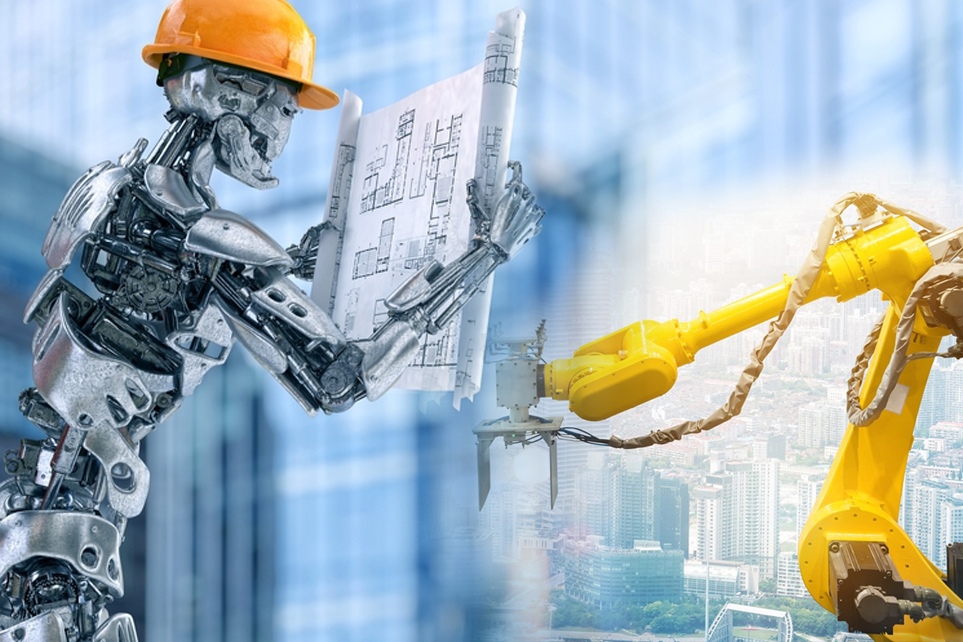Introduction
The Evolution of Construction Technology
The construction industry has undergone significant technological advancements over the years, revolutionizing the way buildings are designed, constructed, and maintained. From the introduction of power tools to the adoption of Building Information Modeling (BIM), technology has played a pivotal role in shaping the modern construction landscape.
The Emergence of Artificial Intelligence in Construction
In recent years, artificial intelligence (AI) has emerged as a game-changer in the construction industry, offering unprecedented opportunities to streamline processes, enhance productivity, and improve project outcomes. AI-powered solutions leverage data analytics, machine learning, and automation to optimize various aspects of the building lifecycle, from project planning and design to construction and maintenance.
Understanding AI in Construction
Defining Artificial Intelligence in Construction
Artificial intelligence refers to the simulation of human intelligence processes by computer systems, enabling machines to perform tasks that typically require human intelligence, such as learning, reasoning, and problem-solving. In the context of construction, AI technologies harness the power of data analytics, machine learning algorithms, and automation to revolutionize traditional construction practices.
Key Components of AI in the Building Industry
AI applications in construction encompass a wide range of technologies and tools, including machine learning algorithms, robotics, drones, and Building Information Modeling (BIM) software. These tools enable construction professionals to optimize project planning, streamline workflows, and make data-driven decisions throughout the building lifecycle.
The Impact of AI on Construction
Enhanced Efficiency and Productivity
One of the most significant impacts of AI on construction is its ability to enhance efficiency and productivity across all phases of the project. AI-powered solutions streamline construction processes, automate repetitive tasks, and optimize resource allocation, resulting in accelerated project timelines and improved project outcomes.
Improved Safety and Risk Management
AI technologies play a crucial role in improving safety on construction sites by identifying potential hazards, monitoring workers’ activities, and implementing preventive measures. Robotics and drones equipped with AI capabilities can perform hazardous tasks, such as site surveying and inspection, without risking human lives, while predictive analytics can anticipate safety risks and prevent accidents before they occur.
Cost Savings and Budget Optimization
AI-driven insights enable construction companies to optimize project budgets, reduce waste, and minimize rework, resulting in significant cost savings. By analyzing historical data and project metrics, AI algorithms identify cost-saving opportunities, negotiate better contracts, and optimize resource usage to maximize profitability.
Quality Control and Compliance Assurance
AI technologies improve quality control and ensure compliance with regulatory standards by detecting defects, monitoring construction progress, and enforcing quality assurance protocols. Automated inspections using drones or sensors identify construction flaws or deviations from specifications, allowing for timely corrections and ensuring project quality.
Innovative Applications of AI in Construction
Construction Planning and Design
AI tools assist architects and engineers in designing buildings that are structurally sound, energy-efficient, and aesthetically pleasing. Building Information Modeling (BIM) software enables collaborative design and visualization, while generative design algorithms can automatically generate optimized building layouts based on specified criteria.
Project Management and Scheduling
AI algorithms analyze historical project data, weather patterns, and resource availability to generate accurate project schedules and forecasts. By predicting project timelines and resource requirements, construction managers can proactively address scheduling conflicts, optimize resource allocation, and mitigate delays.
Material Selection and Procurement
AI-driven analytics assist in selecting appropriate construction materials based on cost, durability, and sustainability criteria. By analyzing vast datasets and market trends, AI algorithms identify cost-effective suppliers, negotiate favorable contracts, and optimize material usage to minimize waste.
Construction Automation and Robotics
AI-powered robots and drones perform various tasks on construction sites, such as site surveying, bricklaying, concrete pouring, and demolition. By automating repetitive and labor-intensive tasks, construction companies improve efficiency, reduce labor costs, and enhance safety on job sites.
Challenges and Considerations
Data Privacy and Security
As AI relies on vast amounts of data for training and analysis, ensuring data privacy and security is paramount. Construction companies must implement robust cybersecurity measures and comply with data protection regulations to safeguard sensitive information and mitigate the risk of data breaches.
Skills and Training
Adopting AI technologies requires a skilled workforce capable of understanding and leveraging advanced tools and algorithms. Construction companies must invest in employee training and upskilling initiatives to ensure that their teams are equipped with the knowledge and expertise needed to harness the full potential of AI.
Integration and Interoperability
Integrating AI tools with existing construction systems and workflows can pose challenges due to compatibility issues and data silos. Construction companies must prioritize interoperability and seamless integration when adopting AI solutions to ensure smooth implementation and maximize efficiency gains.
The Future Outlook of AI in Construction
Trends and Developments
The future of AI in construction holds immense promise, with ongoing advancements in technology driving further innovation and transformation. From intelligent design and planning to automated construction and predictive maintenance, AI technologies will continue to reshape every aspect of the building industry, unlocking new opportunities for growth and sustainability.
Opportunities for Growth and Innovation
As AI continues to evolve and mature, construction companies that embrace these technologies will gain a competitive edge in the market. By leveraging AI-powered solutions to enhance efficiency, improve safety, and optimize project outcomes, construction firms can drive innovation, deliver superior results, and establish themselves as leaders in the industry.
Conclusion
Embracing the AI Revolution in Construction
In conclusion, AI is revolutionizing the construction industry, offering unprecedented opportunities to streamline processes, enhance productivity, and improve project outcomes. By harnessing the power of AI technologies, construction companies can overcome traditional challenges, drive innovation, and shape the future of the building industry for generations to come.
Shaping the Future of the Building Industry
As we look ahead, the integration of AI into construction practices will continue to accelerate, paving the way for smarter, safer, and more sustainable buildings. By embracing change, fostering collaboration, and investing in the right technologies and talent, construction firms can position themselves for success in an increasingly competitive and dynamic marketplace. Together, we can build a brighter future powered by innovation, efficiency, and excellence in construction
To leverage the latest in construction technology in Sacramento, Boulevard Construction stands as a beacon of innovation, integrating AI solutions for cutting-edge projects. With a commitment to excellence and a forward-thinking approach, Boulevard Construction is shaping the future of construction in Sacramento and beyond.







